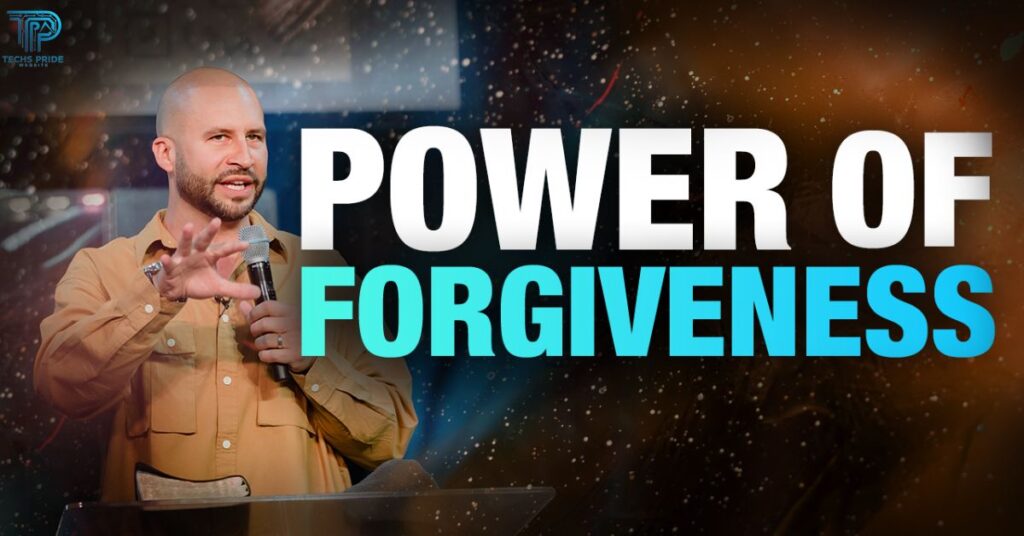A True Relationship is Two Imperfect People Refusi – Tymoff encapsulates the essence of genuine connections. It suggests that authentic relationships are not built on perfection but on the willingness of imperfect individuals to stand by each other despite their flaws.
Reflects the belief that relationships thrive not in the absence of imperfections, but in the presence of mutual understanding and unwavering support. It celebrates the beauty of human connection where partners accept each other flaws and actively work towards building a strong and resilient bond.
A True Relationship is Two Imperfect People Refusi – Tymoff
A True Relationship is Two Imperfect People Refusi – Tymoff encapsulates the essence of genuine connections, emphasizing that true intimacy is found in embracing imperfection. It suggests that authentic relationships are not about achieving perfection but about accepting each other’s flaws and committing to growth together.
This phrase highlights the importance of resilience and determination in overcoming challenges, as imperfect individuals refuse to give up on each other, forging a bond that withstands the test of time. Ultimately, it celebrates the beauty of human connection, where imperfections are embraced and love thrives in the midst of vulnerability and acceptance.
Like this post: This Blog Will Show You About The New Digital Technology In Thailand
Understanding Imperfection
Understanding imperfection is crucial in fostering genuine connections and meaningful relationships. Recognizing that nobody is flawless allows us to embrace our own vulnerabilities and those of others. By acknowledging imperfection, we can cultivate empathy, compassion and acceptance towards ourselves and those around us.
Understanding imperfection means appreciating the uniqueness and complexity of each individual, realizing that flaws are an integral part of being human. It allows us to build deeper connections based on authenticity and mutual understanding, rather than striving for unattainable standards of perfection. Ultimately, understanding imperfection lays the foundation for true empathy, compassion and genuine relationships.
Cultivating Empathy and Compassion
Cultivating empathy and compassion is essential for nurturing healthy relationships and fostering emotional connections. Empathy involves putting ourselves in someone else’s shoes, understanding their feelings, perspectives, and experiences. By practicing empathy, we can develop a deeper understanding of others and respond to their needs with sensitivity and understanding. Compassion, on the other hand, involves showing kindness and concern for others who may be experiencing difficulty or suffering.

Together, empathy and compassion create a supportive environment where individuals feel valued, heard, and understood. Cultivating these qualities involves active listening, being present for others without judgment and offering support and encouragement when needed. By fostering empathy and compassion in our relationships, we can build stronger connections, enhance communication, and create a sense of belonging and trust. Ultimately, cultivating empathy and compassion enriches our lives and strengthens our bonds with others.
Building Trust and Honesty
Building trust and honesty forms the bedrock of any healthy and enduring relationship. Trust is cultivated through consistent honesty, reliability and transparency in communication and actions. When individuals feel that they can rely on their partner to be truthful and dependable, it creates a sense of security and safety within the relationship.
Honesty involves being authentic and truthful with one another, even when it Is difficult. It means sharing thoughts, feelings and experiences openly and without reservation. Honesty fosters transparency and vulnerability, which are essential for building intimacy and connection.
Building trust and honesty requires mutual respect, active listening, and a commitment to understanding each other’s perspectives. It also involves honoring promises and commitments, respecting boundaries and admitting mistakes when they occur.
Challenging and Supporting
Challenging and supporting each other is a dynamic aspect of nurturing a healthy and resilient relationship. It involves encouraging personal growth and development while providing a safe space for vulnerability and exploration.

Challenging each other entails pushing boundaries, encouraging stepping out of comfort zones and providing constructive feedback to promote individual and mutual growth. This may involve gently questioning beliefs or behaviors, offering different perspectives and encouraging self-reflection.
Supporting each other involves being a source of encouragement, validation and reassurance during times of difficulty or uncertainty. It means actively listening, providing emotional support and offering practical assistance when needed. Supporting each other fosters trust, intimacy and a sense of teamwork within the relationship.
Balancing challenge and support requires empathy, communication and mutual respect. It involves understanding each other’s strengths and weaknesses, knowing when to push and when to provide comfort and being willing to learn and grow together.
Embracing Change and Growth
Embracing change and growth is essential for nurturing a vibrant and fulfilling relationship. Change is inevitable in life and relationships must adapt and evolve alongside it to thrive. Embracing change involves being open to new experiences, perspectives and challenges, both individually and as a couple.
Growth, on the other hand, entails continuous self-improvement, learning, and development. It involves recognizing areas for personal and relational growth and actively working towards positive change. Embracing growth means being willing to step out of comfort zones, confront challenges and embrace opportunities for learning and development.
In a healthy relationship, partners support each other’s growth and encourage each other to pursue their goals and aspirations. They celebrate achievements, navigate challenges together and provide encouragement and motivation during times of uncertainty or setbacks.
Embracing change and growth requires communication, flexibility and a willingness to adapt to new circumstances. It involves letting go of rigidity and embracing the unknown with curiosity and optimism. By embracing change and growth together, partners can deepen their connection, strengthen their bond and create a relationship that flourishes over time.
The Common Denominator
The common denominator in relationships is the recognition and acceptance of imperfection. Imperfection is universal. It encompasses flaws, vulnerabilities and moments of weakness that make us human. Understanding this shared reality fosters empathy, compassion and a deeper connection between individuals.
When imperfections are acknowledged without judgment or condemnation, it creates a safe space for vulnerability and authenticity within the relationship. This acceptance allows individuals to be their true selves, fostering trust, honesty and unconditional love.
Ultimately, imperfection serves as the common ground upon which genuine connections are built. By embracing our imperfections and those of others, we cultivate understanding, empathy and a sense of unity that transcends differences. In doing so, we strengthen the foundation of our relationships and foster deeper connections with those around us.
Acceptance without Judgment
Acceptance without judgment is a cornerstone of healthy relationships, allowing individuals to feel valued and understood for who they truly are. It involves embracing each other’s unique qualities, quirks and imperfections without criticism or condemnation.
When acceptance is present in a relationship, individuals feel safe to express themselves authentically, knowing they won not face rejection or ridicule. This creates a nurturing environment where trust, honesty and intimacy can flourish.
Acceptance without judgment requires empathy, compassion and a willingness to see beyond surface level differences. It involves understanding that everyone has their own struggles, insecurities and vulnerabilities and offering support and encouragement rather than judgment.
By practicing acceptance without judgment, individuals can build deeper connections and foster stronger relationships based on mutual respect, understanding and unconditional love.
Building Connection through Imperfections
Building connection through imperfections is a powerful aspect of nurturing genuine and authentic relationships. Imperfections provide opportunities for vulnerability, empathy and understanding, which are essential for creating deep and meaningful connections.
When partners acknowledge and accept each other’s imperfections, it creates a safe space where they can be their authentic selves without fear of judgment or rejection. This vulnerability fosters intimacy and allows individuals to truly connect on a deeper level.
Moreover, imperfections can serve as points of commonality and empathy within a relationship. By sharing their flaws, insecurities and struggles, partners can relate to each other’s experiences and offer support and validation.
Building connection through imperfections also involves embracing forgiveness and understanding that mistakes are inevitable. By practicing forgiveness and offering grace to one another, partners can strengthen their bond and create a foundation of trust and mutual respect.
Examples of Imperfections in Relationships
Imperfections are a natural part of any relationship and they often manifest in various ways. Here are some examples of imperfections commonly encountered in relationships.
- Misunderstandings: Communication breakdowns can lead to misunderstandings and conflicts. These imperfections provide opportunities for partners to practice active listening, empathy and effective communication skills.
- Fears and Insecurities: Everyone has fears and insecurities that can impact their behavior and interactions within a relationship. Partners may support each other in addressing these fears, building confidence and fostering emotional security.
- Bad Days and Moods: It is normal for individuals to have bad days or experience negative emotions that can affect their interactions with their partner. Understanding and patience during these times help create a supportive environment for emotional well being.
- Mistakes and Errors: No one is perfect, and mistakes are inevitable in any relationship. Acknowledging and learning from mistakes, as well as offering forgiveness and understanding, are essential for growth and reconciliation.
- Hiding Imperfections: Many people may hide their imperfections out of fear of judgment or rejection. However, honesty and vulnerability are crucial for building trust and intimacy in a relationship. Creating a safe space where partners feel comfortable being their authentic selves fosters deeper connection and acceptance.
Embracing imperfections and navigating through challenges together strengthen the bond between partners, allowing them to grow and evolve both individually and as a couple.
The Refusal to Give Up
The refusal to give up is a powerful testament to the strength and resilience of a relationship. It signifies a deep commitment to weathering life’s challenges together, no matter how difficult or daunting they may be.
When partners refuse to give up on each other, they demonstrate unwavering support, loyalty and dedication. They stand by each other through thick and thin, offering encouragement, comfort and reassurance during times of adversity.
This refusal to give up fosters trust and security within the relationship, creating a strong foundation upon which love and intimacy can thrive. It shows that partners are willing to work through their differences, overcome obstacles and grow together as individuals and as a couple.
Ultimately, the refusal to give up is a testament to the enduring strength of love and the power of partnership. It reinforces the belief that true relationships are built on mutual respect, understanding, and unwavering commitment, and that together, partners can conquer any challenge that comes their way.
Embracing Imperfection
Embracing imperfection is essential for cultivating genuine and authentic relationships. It involves accepting both our own flaws and those of our partners without judgment or criticism. Instead of striving for unrealistic standards of perfection, embracing imperfection allows us to celebrate the uniqueness and complexity of each individual.

When we embrace imperfection, we create a safe space for vulnerability and authenticity within our relationships. This fosters deeper connections based on mutual understanding, empathy and acceptance. It allows us to love and appreciate our partners for who they truly are, flaws and all, rather than expecting them to meet impossible ideals.
Moreover, embracing imperfection promotes growth and resilience within relationships. It encourages open communication, forgiveness and mutual support as partners navigate life’s challenges together. By embracing imperfection, we can create relationships that are built on honesty, trust and unconditional love, enriching our lives and deepening our connections with those we care about.
Communication: The Key to Understanding
Communication is indeed the key to understanding in any relationship. It is the primary means through which individuals express their thoughts, feelings, needs and desires to one another. Effective communication involves not only speaking but also active listening and understanding the perspectives of others.
When partners communicate openly and honestly, they create a foundation of trust and mutual respect. They feel comfortable expressing themselves authentically, knowing that their thoughts and feelings will be heard and valued by their partner. This fosters a sense of emotional intimacy and connection within the relationship.
Moreover, communication helps to prevent misunderstandings and conflicts by clarifying intentions and expectations. It allows partners to address issues and concerns constructively, rather than allowing them to fester and escalate. By communicating effectively, couples can resolve conflicts, strengthen their bond and build a deeper understanding of each other.
Overall, communication plays a central role in fostering understanding, empathy and connection within relationships. By prioritizing open and honest communication, partners can create a supportive and fulfilling relationship where both individuals feel valued, heard and understood.
Growth Through Vulnerability
Growth through vulnerability is a transformative process that strengthens relationships and fosters personal development. Vulnerability involves exposing our true selves, including our fears, insecurities and weaknesses, to our partner. It requires courage and trust to open up and share our innermost thoughts and feelings with someone else.

When we allow ourselves to be vulnerable in a relationship, it creates an opportunity for deeper emotional connection and intimacy. It allows our partner to see us for who we truly are, flaws and all, and encourages them to do the same. This transparency builds trust and strengthens the bond between partners, fostering a sense of closeness and understanding.
Moreover, growth through vulnerability involves embracing discomfort and uncertainty as opportunities for learning and self discovery. By confronting our fears and insecurities within the safety of our relationship, we can challenge ourselves to grow and evolve as individuals. This process of self reflection and growth not only benefits us personally but also strengthens the overall health and resilience of the relationship.
Ultimately, growth through vulnerability requires mutual support and acceptance from both partners. It involves creating a safe and nurturing environment where both individuals feel comfortable being their authentic selves. By embracing vulnerability as a pathway to growth, couples can deepen their connection and create a relationship that is built on honesty, trust and unconditional love.
Unconditional Love
Unconditional love is the purest form of affection and acceptance one can offer in a relationship. It transcends conditions, expectations and limitations, offering unwavering support and care regardless of circumstances or imperfections.
In a relationship characterized by unconditional love, partners accept each other fully, flaws and all. They offer love, respect and understanding without seeking to change or control one another. This type of love fosters a deep sense of security and belonging within the relationship, allowing individuals to feel valued and appreciated for who they truly are.
Moreover, unconditional love involves forgiveness and compassion, even in the face of challenges or disagreements. It means choosing to prioritize the well being and happiness of your partner above all else and being willing to support them through the ups and downs of life.
The Power of Forgiveness
The power of forgiveness is transformative in relationships, offering healing, growth and reconciliation. Forgiveness involves letting go of resentment, anger and hurt and choosing to release the emotional burden of past grievances.

In a relationship, forgiveness allows partners to move forward from conflicts or betrayals and rebuild trust and intimacy. It acknowledges that everyone makes mistakes and recognizes the humanity in both oneself and one’s partner.
Moreover, forgiveness is a process of empathy and understanding, as it requires acknowledging the perspective and feelings of the other person. It involves choosing compassion over retribution and prioritizing the health and well being of the relationship above personal grievances.
Forgiveness also promotes personal growth and resilience, as it allows individuals to learn from past mistakes and cultivate empathy, humility and grace. It fosters a culture of honesty, openness and vulnerability within the relationship, strengthening the bond between partners.
Ultimately, the power of forgiveness lies in its ability to restore harmony, trust and love in a relationship. By practicing forgiveness, partners can create a supportive and nurturing environment where both individuals feel valued, respected and understood.
The Role of Trust
Trust is the cornerstone of any healthy and lasting relationship. It serves as the foundation upon which intimacy, communication and mutual respect are built. Trust involves believing in the reliability, honesty and integrity of one’s partner and feeling confident that they will act in ways that are consistent with shared values and commitments.
In a relationship, trust creates a sense of safety and security, allowing individuals to be vulnerable and open with their partner. It enables them to share their thoughts, feelings and concerns without fear of judgment or betrayal, fostering deeper emotional connections and intimacy.
Moreover, trust facilitates effective communication and conflict resolution, as partners feel comfortable expressing their needs and working through disagreements in a constructive and respectful manner. It promotes transparency and honesty, allowing both individuals to feel valued and respected in the relationship.
The role of trust extends beyond individual interactions to the overall health and stability of the relationship. When trust is present, partners are more likely to support each other’s goals and aspirations, celebrate successes and navigate challenges together as a team. Trust strengthens the bond between partners and enhances their ability to weather the ups and downs of life with resilience and solidarity.
The Significance of Trust
The significance of trust in a relationship cannot be overstated; it is the cornerstone upon which the foundation of the relationship is built. Trust forms the basis of emotional intimacy, open communication, and mutual respect between partners.
First and foremost, trust creates a sense of safety and security within the relationship. When partners trust each other, they feel confident in sharing their deepest thoughts, feelings and vulnerabilities, knowing that they will be met with understanding and support.
Furthermore, trust fosters effective communication and conflict resolution. Partners who trust each other are more likely to engage in open and honest dialogue, express their needs and concerns and work together to find mutually satisfying solutions to disagreements or conflicts.
Trust also plays a crucial role in promoting personal growth and development within the relationship. When individuals feel trusted by their partner, they are more likely to feel empowered to pursue their goals and aspirations, knowing that they have the support and encouragement of their significant other.
Moreover, trust enhances the overall quality of the relationship by fostering a deep sense of connection and intimacy between partners. When trust is present, partners feel emotionally bonded to each other, leading to greater satisfaction, fulfillment and happiness within the relationship.
Trust and Imperfections
Trust and imperfections are closely intertwined in relationships, as trust often develops through accepting and embracing each other’s flaws, vulnerabilities and mistakes. Imperfections are a natural part of being human and acknowledging them within a relationship can deepen the level of trust between partners.
When partners are able to accept and embrace each other’s imperfections, it demonstrates a level of understanding, empathy and unconditional love. Trust is built on the foundation of accepting each other as flawed individuals, rather than expecting perfection. This acceptance creates a safe and supportive environment where partners feel comfortable being their authentic selves without fear of judgment or rejection.
Moreover, trust is strengthened when partners are honest and transparent about their imperfections. Open communication about struggles, insecurities and mistakes fosters a sense of vulnerability and authenticity within the relationship. When partners are able to share their imperfections without fear of criticism or condemnation, it deepens the level of trust and intimacy between them.
Additionally, navigating through imperfections and challenges together can strengthen the bond of trust between partners. When partners support each other through difficult times, forgive each other for mistakes, and work together to overcome obstacles, it reinforces their commitment to each other and builds a foundation of trust that can withstand the test of time.
The Fragility of Trust
The fragility of trust highlights how delicate and vulnerable trust can be within a relationship. Trust is easily damaged and can take significant time and effort to repair once broken. It is essential for partners to recognize the fragility of trust and take proactive steps to protect and rebuild it when necessary.
Protecting and Rebuilding Trust
Protecting and rebuilding trust requires commitment, patience and open communication from both partners. After a breach of trust occurs, whether through betrayal, deception, or other actions, it is crucial for partners to acknowledge the impact of the betrayal and take responsibility for their actions. This involves being honest, transparent and accountable for their behavior, as well as expressing genuine remorse and a willingness to make amends.
Rebuilding trust also requires creating a safe and supportive environment where both partners feel comfortable expressing their feelings and concerns. This involves engaging in open and honest communication, actively listening to each other’s perspectives and being empathetic and understanding of each other’s emotions.
Building Trust
Building trust involves demonstrating reliability, consistency, and integrity in words and actions. It requires following through on commitments, being transparent about intentions and expectations and respecting boundaries and agreements. Trust is built through consistent behavior over time, as partners prove themselves trustworthy through their actions.
Ultimately, protecting and rebuilding trust requires patience, effort and a mutual commitment to the relationship. It involves acknowledging past mistakes, learning from them and actively working together to create a stronger and more resilient bond. By prioritizing honesty, transparency and mutual respect, partners can rebuild trust and create a foundation for a healthy and fulfilling relationship.
Overcoming the Fear of Vulnerability
Overcoming the fear of vulnerability is essential for fostering deep connections and intimacy in relationships. Vulnerability involves exposing our true selves, including our fears, insecurities and weaknesses, to our partner. However, many individuals fear vulnerability due to concerns about rejection, judgment or being hurt.

To overcome the fear of vulnerability, partners must create a safe and supportive environment where vulnerability is welcomed and embraced. This involves fostering open and honest communication, actively listening to each other’s feelings and concerns and providing empathy and support without judgment.
It is also essential for partners to recognize that vulnerability is a strength, not a weakness. By allowing themselves to be vulnerable, individuals demonstrate courage, authenticity and trust in their partner. They create opportunities for deeper emotional connections and intimacy, as well as personal growth and self-discovery.
Moreover, partners can overcome the fear of vulnerability by taking small steps and gradually building trust with each other. This may involve sharing small vulnerabilities or insecurities and gradually increasing the level of openness and intimacy over time. By taking these incremental steps, partners can develop a sense of safety and security within the relationship, which can help alleviate fears of vulnerability.
Building and Maintaining a Safe Space in a Relationship
Building and maintaining a safe space in a relationship is essential for fostering trust, intimacy and mutual respect between partners. A safe space is an environment where both individuals feel comfortable expressing themselves openly and honestly without fear of judgment or reprisal.
To create a safe space in a relationship, partners must prioritize open and honest communication. This involves actively listening to each other’s thoughts, feelings and concerns without interruption or judgment. Partners should strive to validate each other’s experiences and emotions, demonstrating empathy and understanding in their interactions.
Respecting each other’s boundaries and feelings is also crucial for building a safe space. Partners should be mindful of each other’s personal space, preferences and comfort levels and refrain from engaging in behaviors that could cause harm or discomfort. Establishing clear boundaries and agreements helps create a sense of safety and predictability within the relationship.
Additionally, creating a safe space requires practicing forgiveness and compassion. Partners should be willing to forgive each other for mistakes or misunderstandings and offer support and encouragement during difficult times. By fostering a culture of acceptance and understanding, partners can build trust and resilience within the relationship.
Consistency and reliability are also key components of maintaining a safe space. Partners should strive to be dependable and trustworthy in their words and actions, honoring their commitments and following through on promises. By demonstrating reliability, partners reinforce a sense of security and stability within the relationship.
Love in a True Relationship: A Journey of Evolution
Love in a true relationship is not static; it is a dynamic journey of growth and evolution. It begins with the initial spark of attraction and evolves into a deep and enduring bond built on trust, understanding and shared experiences.

As the relationship progresses, love matures and deepens, transcending superficial infatuation and developing into a profound connection rooted in mutual respect and admiration. Partners learn to appreciate each other’s strengths and weaknesses, embracing each other’s flaws and imperfections with compassion and acceptance.
Moreover, love in a true relationship is characterized by resilience and adaptability. Partners navigate through life’s challenges together, supporting each other through the ups and downs and growing stronger as a result. They learn to communicate effectively, resolve conflicts constructively and compromise for the greater good of the relationship.
In addition, love in a true relationship is marked by intimacy and connection. Partners share their hopes, dreams and fears with each other, creating a deep sense of emotional closeness and vulnerability. They find joy in the simple moments spent together, cherishing each other’s company and finding solace in each other’s presence.
The Evolution of Love
The evolution of love in a relationship is a multifaceted journey that unfolds over time, marked by growth, understanding and deepening intimacy. Initially, love may be characterized by infatuation and passion, driven by the excitement of newfound connection. However, as partners navigate through life’s experiences together, their love matures and transforms into something deeper and more profound.
As love evolves, partners learn to navigate challenges and conflicts, gaining a deeper understanding of each other’s needs, desires and vulnerabilities. They develop a sense of empathy and compassion, supporting each other through life’s ups and downs with unwavering devotion and understanding.
Moreover, the evolution of love involves a process of mutual growth and self-discovery. Partners inspire each other to become the best versions of themselves, encouraging personal development and growth. They celebrate each other’s successes and provide comfort and support during times of struggle, fostering a sense of unity and partnership.
Appreciating the Ordinary
Appreciating the ordinary is a profound aspect of love and relationships, often overlooked amidst the grand gestures and milestones. It involves finding beauty and meaning in the everyday moments shared between partners, from mundane routines to simple acts of kindness.
In appreciating the ordinary, partners learn to cherish the little things that make their relationship special. It could be sharing a morning coffee together, cooking dinner as a team, or cuddling on the couch while watching a favorite TV show. These seemingly small moments become the building blocks of intimacy and connection, reinforcing the bond between partners and creating a sense of comfort and security.
Furthermore, appreciating the ordinary allows partners to stay grounded and present in the moment, fostering mindfulness and gratitude. Instead of constantly seeking excitement or novelty, they find contentment and fulfillment in the here and now, recognizing the richness and depth of their relationship.
Choosing Love Daily
Choosing love daily is a conscious commitment that partners make to prioritize their relationship and nurture their connection on a daily basis. It involves actively choosing to express love, kindness and appreciation towards each other, even amidst life’s challenges and distractions.
To choose love daily, partners must cultivate habits and behaviors that foster connection and intimacy. This could include simple gestures such as saying I love you, giving compliments, or performing acts of service to show care and affection. It also involves actively listening to each other, being present in the moment, and making time for quality interactions and shared experiences.
Moreover, choosing love daily requires a willingness to navigate conflicts and disagreements with empathy and understanding. It involves practicing forgiveness, letting go of resentments and choosing to prioritize the health and happiness of the relationship over individual ego or pride.
Frequently Asked Question
Why is imperfection emphasized in this concept?
Imperfection is emphasized because it acknowledges the reality that no person or relationship is flawless. Embracing imperfections fosters empathy, compassion and a deeper connection between partners.
How does this concept promote empathy and compassion in relationships?
By acknowledging and accepting each other’s imperfections, individuals in a relationship can cultivate empathy and compassion. This understanding allows partners to support each other through difficult times and build a stronger bond.
What role does trust play in “A True Relationship is Two Imperfect People Refusi – Tymoff”?
Trust is fundamental in this concept as it forms the foundation of a strong and lasting relationship. Trust allows individuals to be vulnerable, communicate openly, and rely on each other during times of need.
How does this concept address the importance of communication in relationships?
Effective communication is essential in A True Relationship is Two Imperfect People Refusi – Tymoff as it enables partners to understand each other’s needs, resolve conflicts and express love and support. Open communication fosters honesty, transparency and emotional intimacy.
How can individuals apply the principles of this concept in their own relationships?
Individuals can apply this concept by embracing their partner’s imperfections, practicing empathy and compassion, prioritizing trust and honesty, communicating openly and honestly and committing to supporting each other’s growth and well being. These principles can help cultivate a deeper and more fulfilling relationship.
Conclusion
A True Relationship is Two Imperfect People Refusi – Tymoff encapsulates the essence of genuine connections built on acceptance, empathy, and resilience. This concept emphasizes that real relationships thrive when individuals embrace each other’s imperfections and commit to working through challenges together.
prioritizing empathy, compassion, trust and open communication, partners can cultivate a deep and meaningful connection that withstands the tests of time. Ultimately, understanding that imperfection is a natural part of human experience allows individuals to foster stronger bonds, celebrate each other’s growth, and create a lasting partnership filled with love, understanding and mutual support.

I’m a tech writer specializing in explaining complex software and hardware topics clearly. Passionate about making technology accessible through straightforward, engaging writing.







